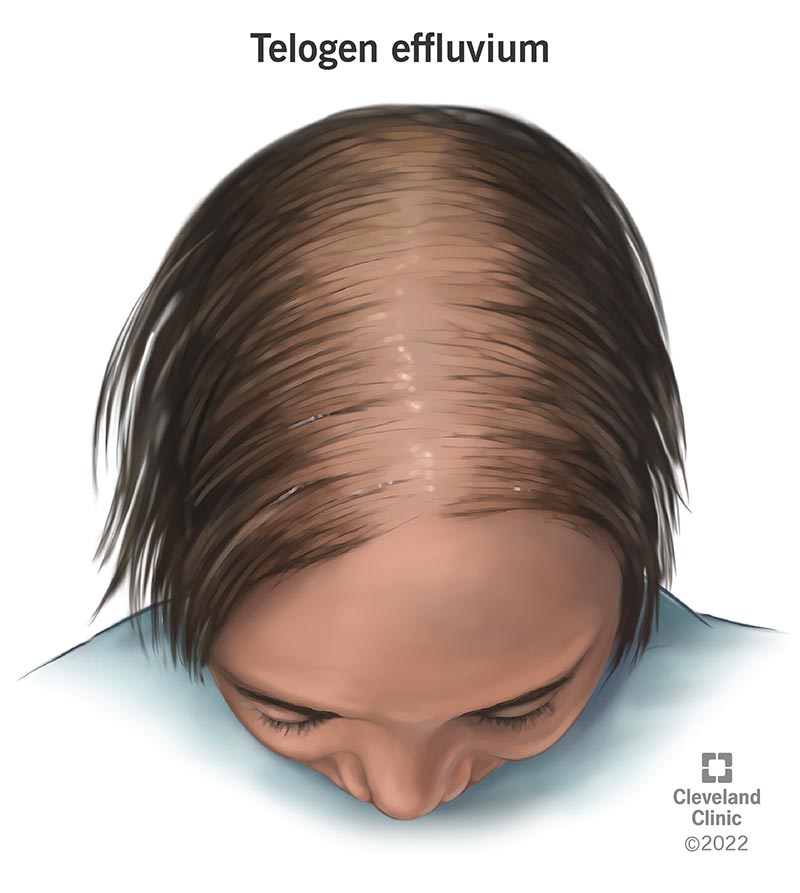Pulse of Information
Stay updated with the latest news and insights.
Hair Today, Gone Tomorrow: Why It Happens
Discover the surprising reasons behind hair loss and what you can do to prevent it. Don't let your locks vanish without a fight!
Understanding the Causes of Hair Loss: A Comprehensive Guide
Understanding the causes of hair loss is crucial for anyone experiencing this common issue. Hair loss can stem from a variety of factors, including genetics, hormonal changes, medical conditions, and environmental influences. Genetic predisposition, often referred to as androgenetic alopecia, is one of the most prevalent causes, affecting millions of people worldwide. Hormonal imbalances related to conditions such as polycystic ovary syndrome (PCOS) in women or thyroid issues can also trigger significant hair thinning. Additionally, certain illnesses like autoimmune disorders, stress, and even nutritional deficiencies can play a pivotal role in the onset of hair loss.
In order to address hair loss, it is essential to identify its underlying cause. Here are some common causes:
- Genetics: Family history of hair loss.
- Hormonal Changes: Fluctuations due to pregnancy, menopause, or endocrine disorders.
- Medical Conditions: Autoimmune diseases such as alopecia areata.
- Stress: Physical or emotional stress can lead to temporary hair loss.
- Nutritional Deficiencies: Lack of vital nutrients like iron, vitamin D, and protein.

The Science Behind Hair Growth: Why Does It Stop?
The Science Behind Hair Growth reveals a fascinating process influenced by various biological factors. Hair grows in cycles, which consist of three main phases: anagen (growth), catagen (transitional), and telogen (resting). During the anagen phase, which can last several years, hair follicles actively produce new hair cells. However, as we age or experience hormonal changes, this cycle can be disrupted. Factors such as genetics, health conditions, and poor nutrition can lead to premature halting of the hair growth cycle, ultimately resulting in hair loss or thinning.
Understanding why hair growth stops requires an appreciation of the underlying causes. One significant factor is hormonal imbalance, particularly involving androgens, which can shrink hair follicles and shorten the growth phase. Additionally, stress and certain medical conditions, such as autoimmune disorders, can trigger a condition known as telogen effluvium, where hair prematurely enters the telogen phase and falls out. Addressing these factors through proper care, balanced diet, and consultation with healthcare professionals may help stimulate hair growth and prevent further loss.
Common Myths About Hair Loss: What You Need to Know
There are numerous myths about hair loss that can mislead individuals struggling with this common issue. One of the most prevalent myths is that hair loss only affects older adults. In reality, hair loss can occur at any age due to various factors, including genetics, hormonal changes, and environmental influences. Additionally, people often believe that wearing hats can cause hair loss. This is not true; while tight hairstyles can lead to traction alopecia, a standard hat does not hinder hair growth.
Another common misconception is that hair loss is solely a male problem. In fact, women can also experience significant hair thinning and loss, often due to conditions such as polycystic ovary syndrome or thyroid disorders. Furthermore, some individuals think that shampooing too frequently can lead to hair loss. This is a misunderstanding; healthy washing habits can actually help maintain scalp health. Understanding these myths is essential for taking the right steps towards effective hair care and treatment options.